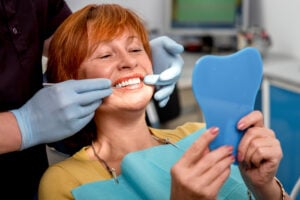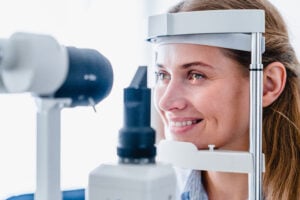There is a national shortage of NHS dental care in the UK, a new nationwide study has revealed. People are waiting months for treatment or travelling hundreds of miles to find a dentist that will see them.
A survey by the BBC in partnership with the British Dental Association (BDA) found that nine out of ten NHS dental practices were not taking on new adult patients, and eight out of ten were not taking on children.
The situation is worst in rural areas such as the southwest of England and Yorkshire and Humber. Consequently, many patients are turning to private dentistry in the UK and seeking dental treatment overseas across Europe.
The UK dental sector, like healthcare as a whole, includes both NHS and private services. NHS dental treatment is free for children, pregnant women and those on income support. Other patients must pay for their treatment, although it is subsidised. Private dental treatment can be considerably more expensive. In some parts of the country, NHS treatment is now difficult to find because of a lack of professionals working in dentistry.
The government pays NHS dentists according to a “dental contract” specifiying the treatments covered and how they are renumerated. For years, UK dentists have claimed that this contract does not sufficiently reflect the nature of their work. Because of this tension, many professionals have chosen to set up a private practice or have left the industry.
European dentists head home after Brexit
Dentists trained in the EU made up more than 20% of new practitioners registered by the UK’s General Dental Council (GDC) in 2020. However, since the UK began the process of leaving the European Economic Union and the European Single Market in January of that year, the long-term position of EU nationals working in the UK has been uncertain. Although the GDC has continued to recognise professional dental qualifications from the European Economic Area after Brexit, the government is scheduled to review this early next year.
Before Brexit, dentists with EEA nationality could work in the UK without a visa, subject to GDC registration. After December 2020, they were required to apply for settled status to maintain their rights to work and live in the UK, no matter how long they had been in the country.
Thousands of European dentists returned home to the EU in the run up to Brexit, according to the British Dental Association (BDA). The number of dentists working in the UK has been falling for many years. In addition, recruiting new staff from the EU is now slower and more costly.
Seeking dental treatment overseas
Patients in some parts of the country must wait months or even years for treatment at an NHS practice. They may be offered quicker treatment if they can pay for it privately in the UK – or travel abroad.
Although NHS dental care is subsidised, over 60% of UK patients interviewed said they found it was too expensive. The same treatment undertaken privately can cost several times as much.
UK nationals are increasingly turning to dental tourism – travelling abroad for dental treatment. European nations, particularly Hungary, Turkey and Croatia, offer high-quality and affordable dental treatment at almost half the price of the UK private sector.
Other popular destinations include Poland, Mexico and the United Arab Emirates. Many people take the opportunity to spend time exploring the sights of these historic cities or visiting the beaches of Gdansk or Bodrum. Flights from London to Warsaw and Budapest take around two hours, and Istanbul in Turkey can be reached in under four hours.
Dental implants are generally not available from an NHS practice and may cost thousands of pounds if carried out privately in the UK. One Turkish dental practice offers implants from £460 and crowns from £140 “in four stunning locations along the Mediterranean coastline”. A Hungarian dental clinic highlights the region’s vineyards, castles, and goulash, a traditional meat stew. However, it warns “for a few days after some dental treatments, you should only eat soft food.”
Medical Travel Market is a UK based health tourism agency specialising in treatment abroad and helping patients find the right care providers.
Click here to contact our care team for a treatment abroad consultation.















